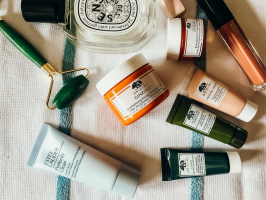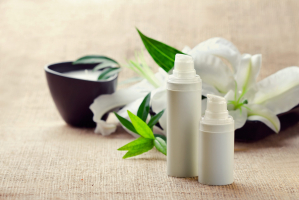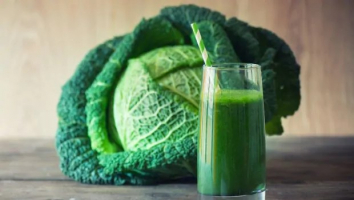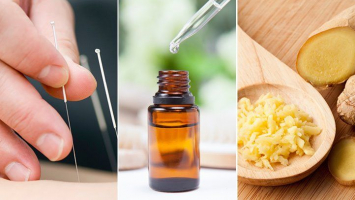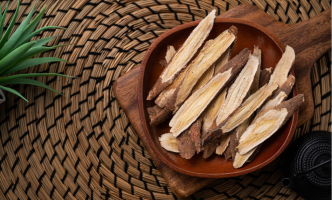Top 10 Best Natural Cough Remedies
There are many over-the-counter (OTC) drugs that can be used to treat coughs brought on by colds, allergies, and sinus infections. Antibiotics are necessary ... read more...for bacterial infections. You can talk to your doctor about additional treatment options for your cough in addition to taking medicine. Here are some home remedies to consider.
-
A well-known treatment for sore throat is honey. It can also lessen coughs more successfully than OTC drugs that contain the cough suppressant dextromethorphan (DM), according to one study.
Children aged 2 and older with upper respiratory tract infections that resulted in cough were given up to 2 teaspoons of honey at bedtime in a research that was published in the journal Pediatric Clinics of North America. The honey not only reduced nighttime coughing but also made it easier to fall asleep. By combining up to two teaspoons of honey with herbal tea or warm water and lemon, you can make your own treatment at home. While the lemon juice might relieve congestion, the honey soothes. The two teaspoons of honey can also be consumed directly or combined with a toast to make a spread for a snack.
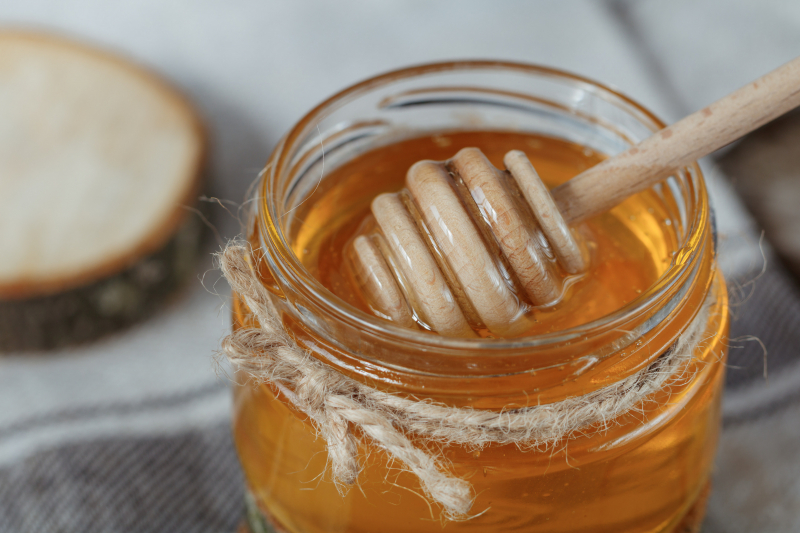
Honey 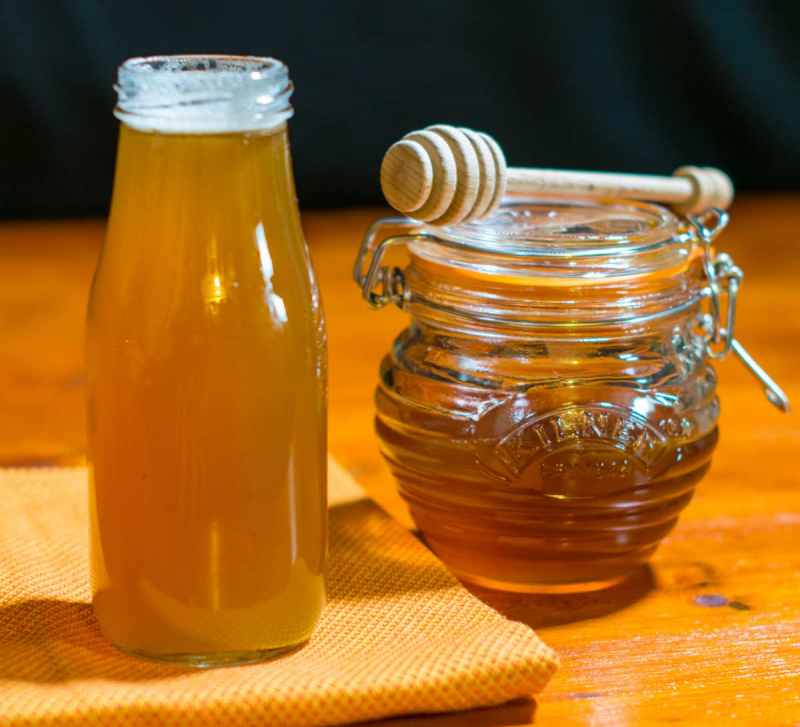
Honey -
Microorganisms known as probiotics have a number of positive health effects. While they don't immediately treat a cough, they do help in keeping a balance of gut bacteria. The bacteria that live in your intestines are known as gastrointestinal flora.
The overall health of the immune system can be supported by this balance.
Although the evidence is still inconclusive, a 2015 study found a drop in the number of persons getting upper respiratory infections after taking different strains of probiotics. The suggested daily intakes vary based on the supplement manufacturer. Miso soup, sourdough bread, and various types of yogurt also include probiotics. You should discuss which probiotic is best for you and your condition with your doctor given the variety of probiotics that are presently available. Probiotics can be obtained naturally by eating fermented foods, such as:
- Miso
- Sauerkraut
- Yogurt
- Kefir
- Kombucha
- Tempeh
- Kimchi
- Sourdough
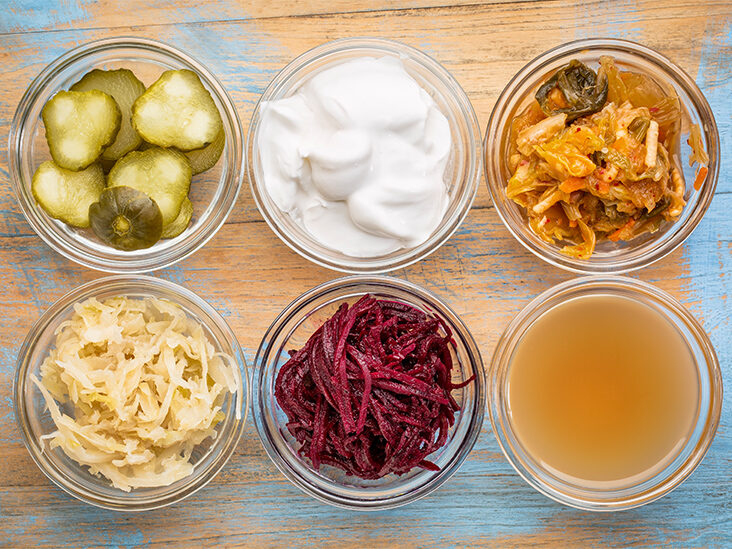
Probiotics 
Probiotics -
Because you haven't heard of bromelain, you might not often think of pineapple as a cough remedy. There is some evidence that bromelain, an enzyme found only in the stem and fruit of pineapples, may help to relieve coughing and release throat mucus.
Eating a slice of pineapple or consuming 3.5 ounces of fresh pineapple juice three times a day will provide you with the greatest benefits from bromelain and pineapple. Additionally, there are suggestions that it can help with sinus issues like sinusitis and allergy-related sinus problems, which can contribute to coughs and mucus. However, there isn't enough proof to back this up. Inflammation and swelling may also sometimes be treated with it. Bromelain supplements should not be given to children or adults who are using blood thinners. Additionally, use caution while using bromelain if you're taking antibiotics like amoxicillin because it can increase the absorption of the medication. Before taking any new or unfamiliar supplements, always with your doctor.

Bromelain 
Bromelain -
It is commonly known that peppermint leaves have therapeutic properties. Menthol can be found in this common herb. The menthol in peppermint can ease throat discomfort and may even make breathing seem easier. There is a lot of usage of this essential oil for congestion relief, but there isn't much proof that it works. Even though a study found that menthol does not actually reduce symptoms when inhaled, people who do so still report feeling better.
Both consuming peppermint tea and breathing in the vapor from a steam treatment have advantages. You might want to try inhaling peppermint essential oil with your diffuser or a bowl of steaming water to feel relief from your cough. Add 7 or 8 drops of peppermint essential oil to a cup of freshly boiled water to make a steam treatment. Take a few deep breaths directly over the water while putting a towel over your head.
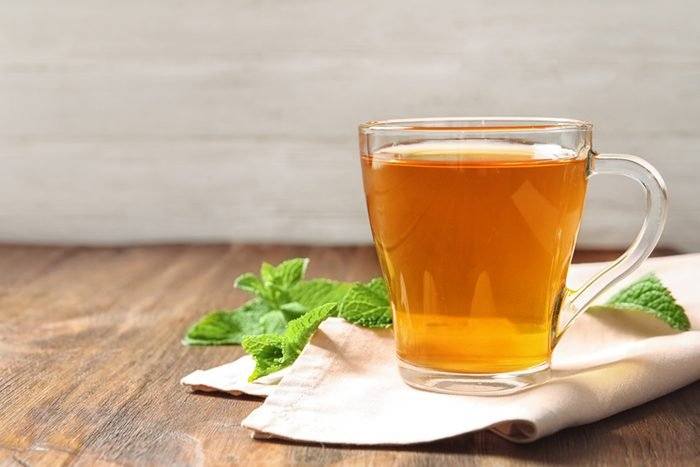
Peppermint 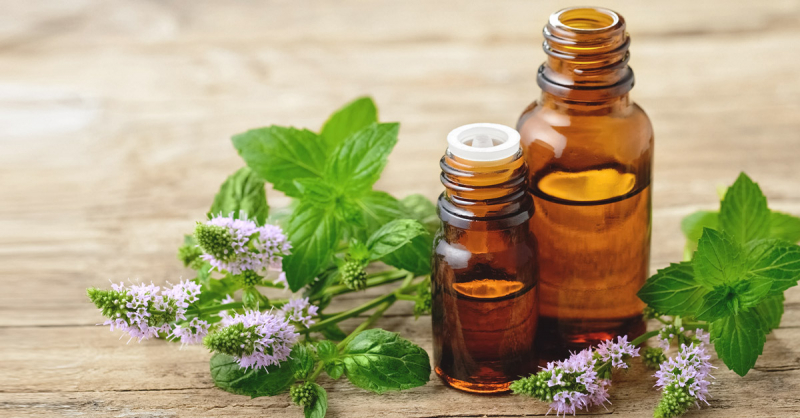
Peppermint -
Althaea officinalis, a perennial with summer flowers, is used to make marshmallow roots. It's not the same as roasting a marshmallow over a fire, which is soft and gooey.
Since ancient times, the leaves and roots of the marshmallow plant have been used to soothe sore throats and stop coughing. Due to the marshmallow plant's soothing impact on the irritated tissues of the throat and sinuses, a lab study conducted in 2020 discovered that it was helpful at suppressing a cough. The plant's anti-inflammatory and antioxidant properties may be to blame for this. Mucilage, which coats the throat and soothes irritation, is another component of marshmallow root. Today, marshmallow root is available as a tea or in capsule form. A cough and sore throat can both be relieved by warm tea. Although marshmallow roots and leaves are not advised for children, the herb is usually regarded as safe.
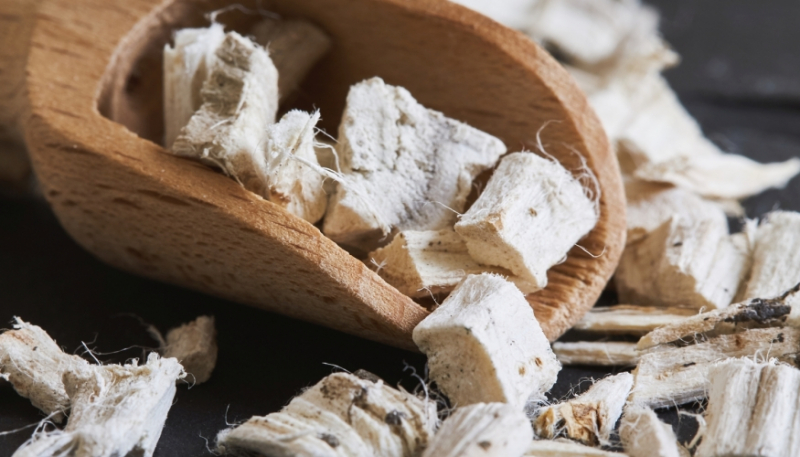
Marshmallow root 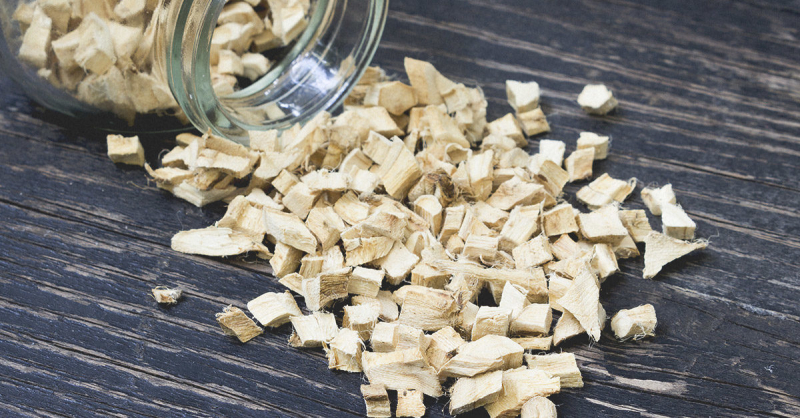
Marshmallow root -
Thyme is a Mediterranean plant used for cooking, medicine, and decoration. It is a common ingredient in many cuisines, including Latin America, Europe, the Mediterranean, Africa, the U.K, and the Caribbean. Fresh or dried versions can be bought to use in cooking and medicine.
Some people use thyme to treat respiratory conditions. With its antifungal and antispasmodic effects, this herbal remedy fights agents that cause bronchitis and helps to subdue coughs and soothe a sore throat. The essence of thyme leaves mixed with ivy, according to one small study involving 361 patients with acute bronchitis, may help reduce coughing and short-term bronchitis. The flavonoids in the leaves relax the throat muscles used in coughing and reduce inflammation. 2 tablespoons of crushed thyme leaves and 1 cup of boiling water can be used to make thyme tea at home. For 10 minutes, cover the cup, soak; then strain.
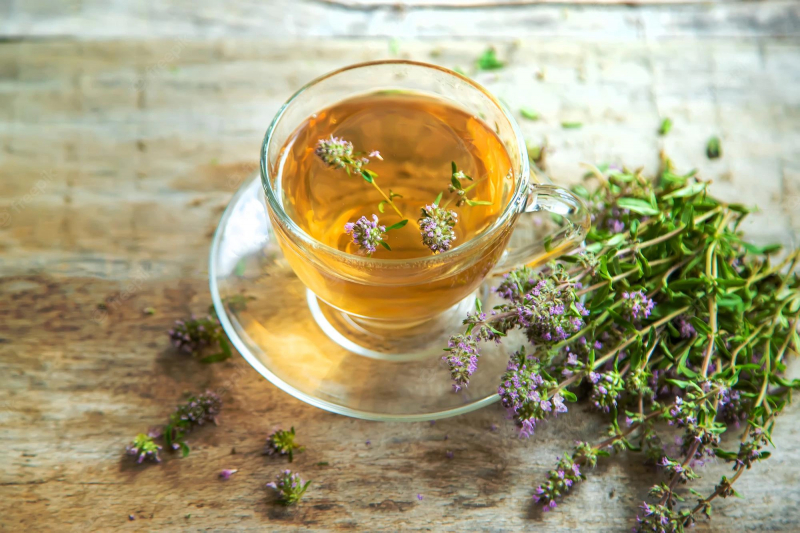
Thyme 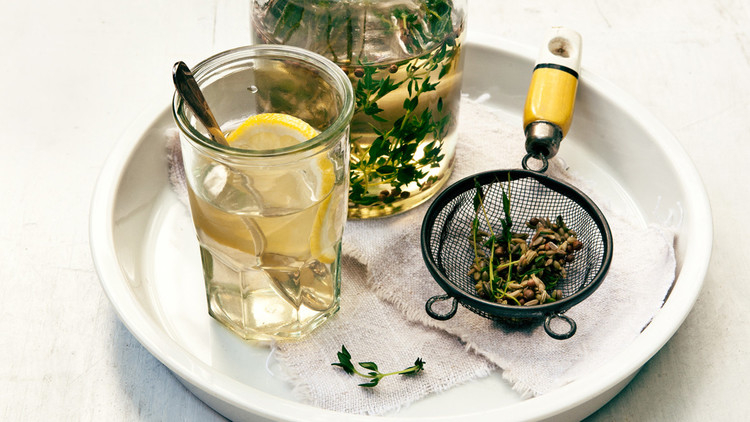
Thyme -
A salt and water gargle might help calm a scratchy throat that makes you cough, even though the treatment may appear quite simple. It's most often used for sore throats, viral respiratory infections like colds, or sinus infections.
It's advised to gargle with a solution of half a teaspoon of salt dissolved in a full glass of warm water for a few seconds before spitting it out. The water can be better at a warm temperature because a sore throat may find warmth more soothing than cold. In general, it's also more pleasant. However, it won't affect the efficiency of the treatment if you prefer cold water. Adults can try combining warm water with lemon and honey for a more pleasant remedy for cough and sore throat. It should be noted that children under the age of six are not particularly adept at gargling, therefore it is best to try alternative treatments instead.

Saltwater gargle 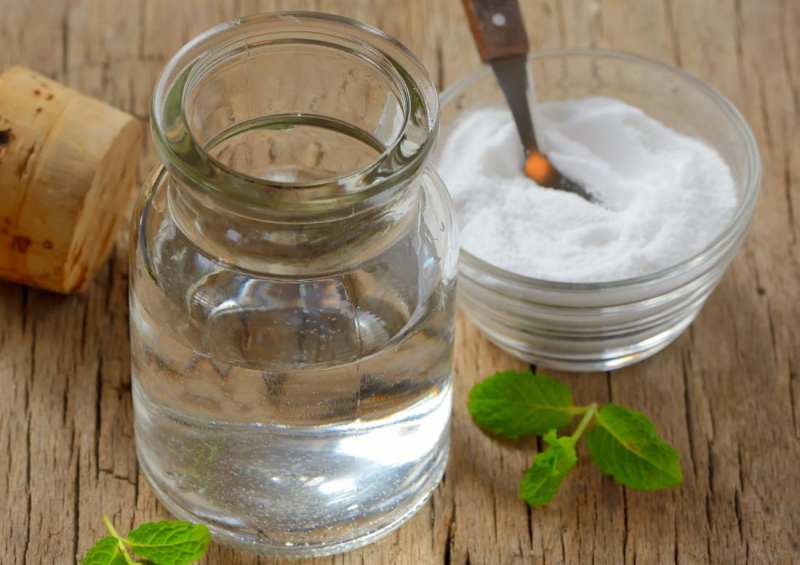
Saltwater gargle -
Popular traditional medicine includes ginger, which contains bioactive compounds that have beneficial effects on your health. It may also be used to treat coughing. It is frequently used to relieve nausea and stomach upset.
According to a scientific experiment, ginger may help to relax the muscles in the airway. Coughing and other asthma symptoms may benefit from this. Anti-inflammatory properties found in ginger may help to lessen throat swelling and inflammation. Ginger tea is the greatest option if you have a cough. Your throat's discomfort, dryness, and mucus can all be improved by the hot liquid. Slice a fresh ginger root into 1-inch slices to make ginger tea. Depending on how strong you want your tea, boil 1 cup of water for 10 to 15 minutes. Additionally, you can get ginger tea bags offline or online.
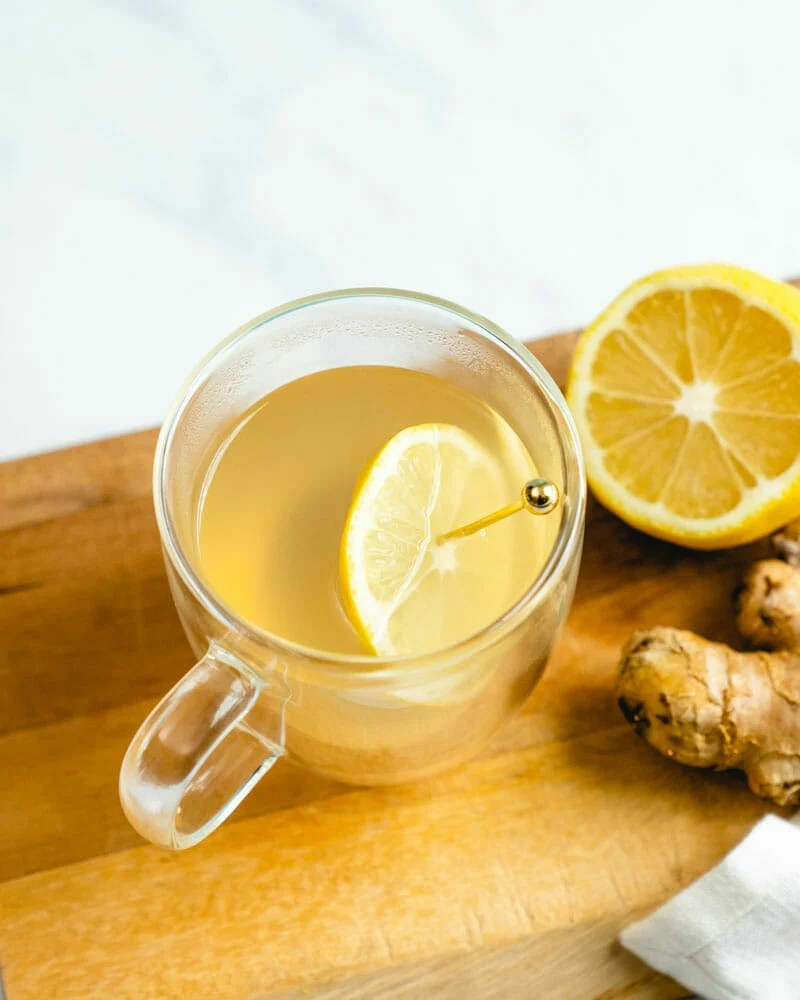
Ginger 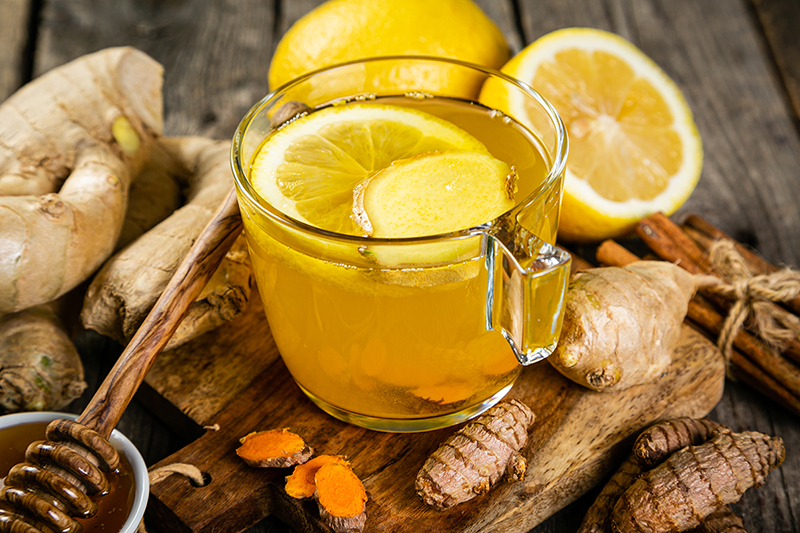
Ginger -
An age-old treatment for a cough and sore throat is slippery elm. Slippery elm contains mucilage, a sticky mixture of sugars that can’t be broken down by the human digestive tract. The mucilage coats the throat, so it should come as no surprise that slippery elm is used commercially in numerous types of throat lozenges.
Given that slippery elm is said to have antitussive properties, it is excellent for treating coughs as well as the signs of other upper respiratory conditions like bronchitis or asthma. And there are no studies to support or refute these claims. However, there are no known harmful side effects of slippery elm. You can get slippery elm in the form of lozenges, capsules, tablets, and tea. Tea and lozenges are great for soothing sore throats.
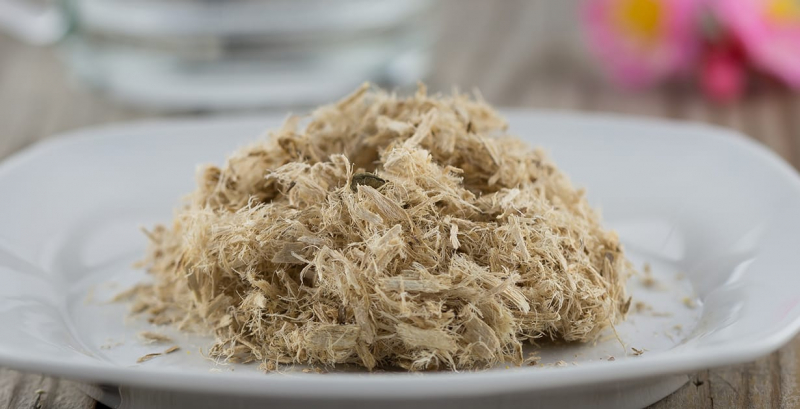
Slippery elm 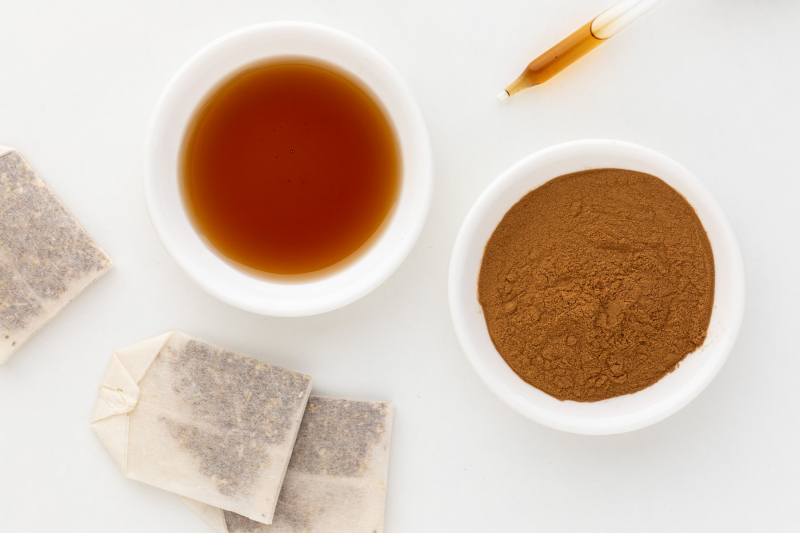
Slippery elm -
Over the years, turmeric has been traditionally used for a variety of illnesses. Curcumin, the key ingredient in it, has strong anti-inflammatory properties. Researchers have discovered that turmeric may also be beneficial for those who suffer from cold and flu-like symptoms.
Consuming black pepper along with turmeric is recommended. That's because piperine, the main ingredient in black pepper, makes turmeric more bioavailable. This increases turmeric absorption by your body. Warm milk and turmeric are well-liked and effective methods for treating colds and coughs. Before going to bed, drink a glass of warm turmeric milk to speed up your recovery from a cold or cough. Warm turmeric tea with some honey for sweetness and a dash of black pepper is another great option.

Turmeric 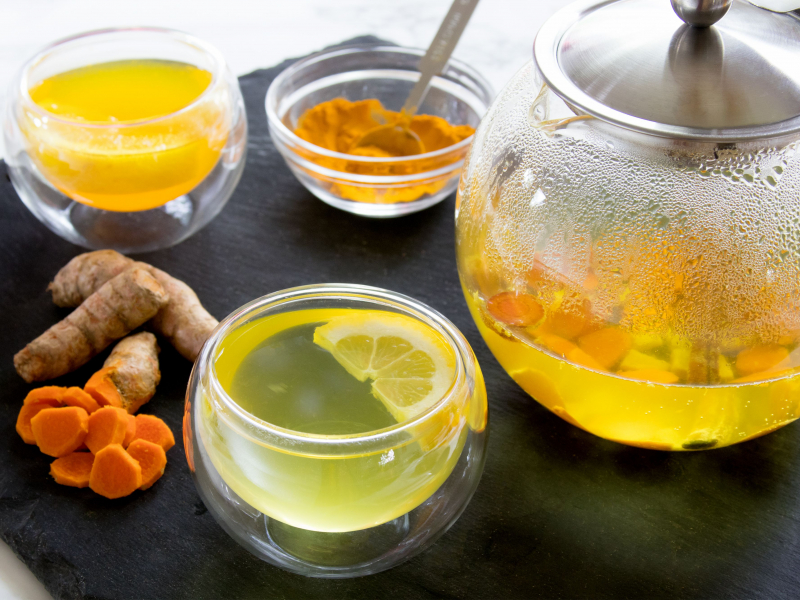
Turmeric













